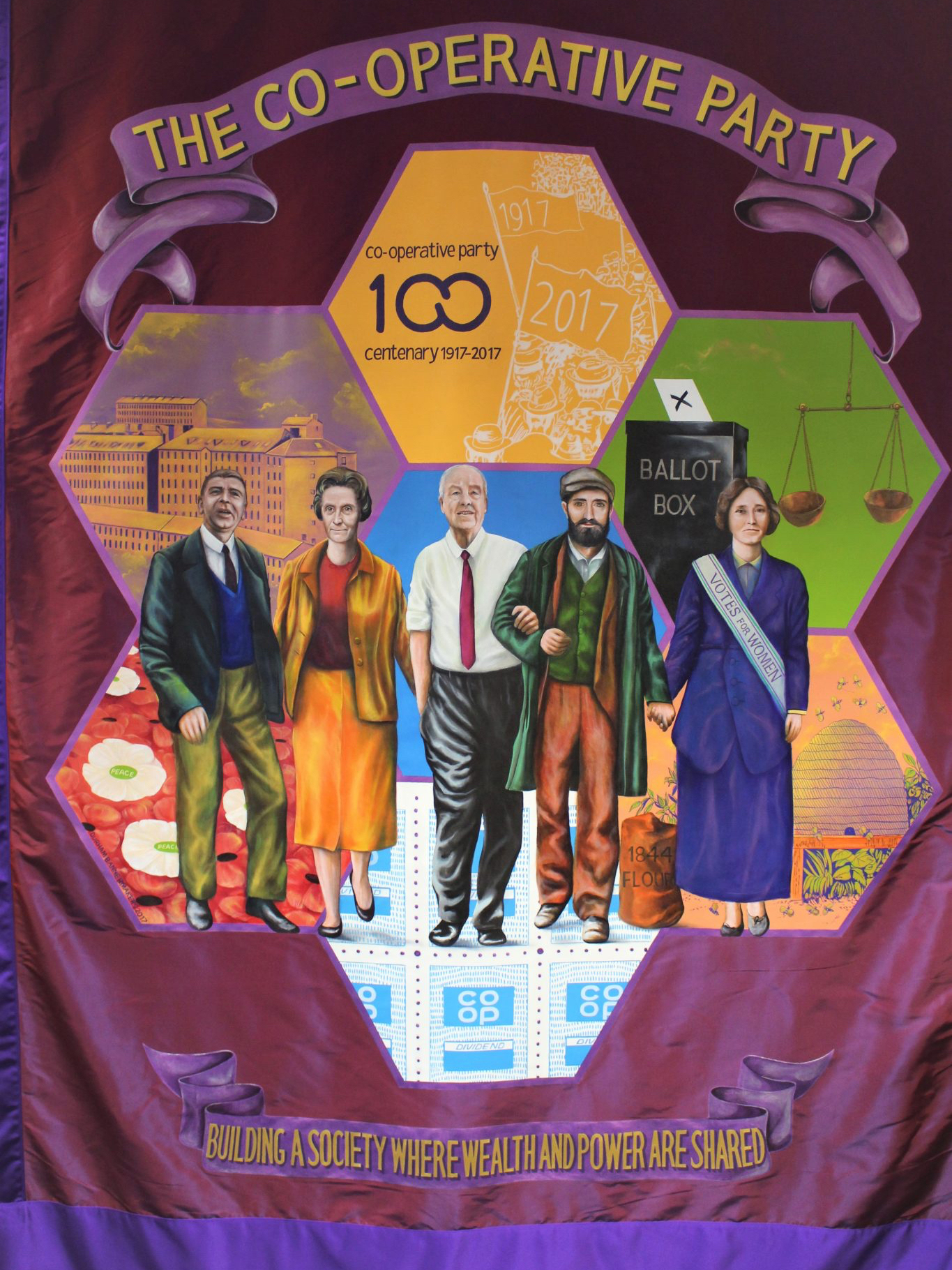As part of its 100th anniversary celebrations, the Co-operative Party is presenting an exhibition that tells the story not just of the Party, but of the co-operative movement’s journey in politics – from the Chartists through to its campaigns on issues such as loneliness and fair tax today.
Pioneering the Future: the politics of co-operation opens at Manchester’s People’s History Museum until 20 November, and will include the Party’s Centenary marching banner, commissioned this year, as well as other historic banners owned by local parties and branches.
There will be examples of pamphlets, reports and other materials produced by the Party throughout its history as well as recorded oral histories of key living figures in the movement’s history, created as part of the Party’s Centenary Oral History project.
Visitors will also get the chance to vote on an issue they think co-operative values could help to address.

“From votes for women to championing Fairtrade, co-operatives have always been at the forefront of fighting for political change,” said the Party.
“Marking the centenary of the Co-operative Party, the co-operative movement’s political voice, this exhibition explores the radical ideals that inspired those first co-operators, and the challenges that in 1917 drove the co-operative movement to seek direct political representation via a political party of its own. It reflects on the Party’s achievements over the past century, and all that there is left to achieve in the next.”
Among the stories told in the exhibition are those of the shop assistant who served as secretary of state, the first woman to be made a government whip, a blacksmith’s son who led the Royal Navy in Churchill’s Cabinet, and the son of a gassed soldier who lost an eye and a leg in the First World War, who would go on to pass the world’s first disability rights legislation.
“This exhibition celebrates people, ideas and communities coming together,” adds the Party, “using their collective strength to win economic and political power – and who in doing so, have changed our world for the better.”
- Pioneering the Future: the politics of co-operation runs at the Community Exhibition hall, People’s History Museum, Manchester, 9 September – 20 November 2017. Free admission.
- Check out more of our coverage of the Co-op Party centenary here.

